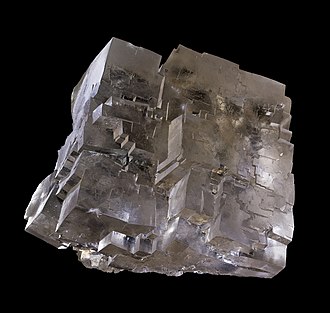Table salt

Table salt is a mineral composed mainly of sodium chloride (NaCl). This is a chemical compound, one of many salts. Salt in its natural form as a crystalline mineral is known as rock salt or halite.
When salt (sodium chloride) is mixed with water, the salt dissolves into the water, creating a saline solution. Salt is present in vast quantities in seawater, where it is the main mineral constituent. The open ocean has about 35 grams (1.2 oz) of solids per litre, a salinity of 3.5%.
Salt can be made by either evaporation or can be mined. To get sea salt, man-made holes are built then filled with sea water. The water evaporates and leaves salt behind.

Table salt is one of the few minerals that are eaten a lot by humans, but it can be used for other things besides giving food its flavor. Both sodium and chlorine are needed for all living creatures, including humans, but they are not always eaten in the form of salt, where they are found together in large amounts. Some peoples, like the Yanomami tribe in South America, eat very little salt. Salt is used to control the amount of water in the body. Salty flavor is also one of the basic tastes. Salt cravings may be caused by not having enough minerals, such as sodium chloride, in the body.
Eating too much or too little salt can make health problems more likely to happen, for example hypertension. When food is made, salt was often used as a preservative, to make the food last longer, and as a seasoning, for flavor. Salt is less used as a preservative now as refrigeration is used instead and people are worried that too much salt will make them ill.[1]
There are different ways to get table salt:
- From the sea, using salt evaporation ponds or desalinisation plants.
- From a mountain, or underground, using salt mines.
- From natural brine.
- From the supermarket.
Related pages
[change | change source]References
[change | change source]- ↑ Hayward, Tim (2023-08-24). "I want my salt back". Financial Times. Retrieved 2023-08-25.